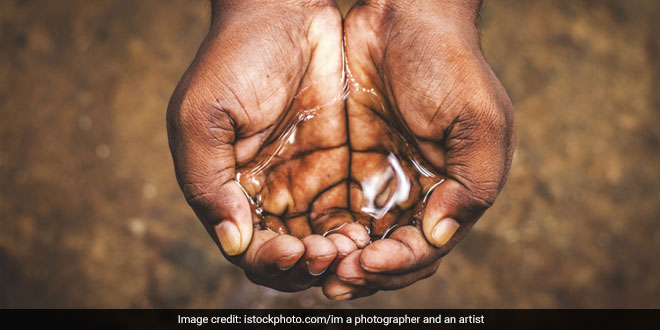New Delhi: In a countrywide effort to enhance water security, especially in water-stressed districts, the Centre initiated Jal Shakti Abhiyan (JSA) has delivered over 3.5 lakh water conservation measures in 256 districts. The outcome of the first phase of the JSA was announced at a review meeting by Cabinet Secretary in New Delhi on Friday. Out of these, 1.54 lakh are of water conservation and rainwater harvesting measures, 20000 related to the rejuvenation of traditional water bodies, over 65000 are reuse and recharge structures and 1.23 lakh are watershed development projects.
An estimated 2.64 crore people have already participated in the Abhiyan making it a Jan Andolan. About 4.25 crore saplings were planted as a part of the efforts, he said.
Chairing the review, Union Cabinet Secretary Pradeep Kumar Sinha appreciated the efforts and commitment shown by the nodal officers in the campaign and encouraged them to closely work with districts for bringing significant changes through key interventions and initiatives.
Also Read: Rainwater Harvesting: Conserve To Consume, Says This 40-year-old From Mumbai
JSA has definitely created a lot of buzz in the country, and it will do a lot of good in the years to come. Our aim is to ensure the benefits reach the farmers at the ground-level, he said.
DDWS Secretary Parameswaran Iyer shared that the JSA has led to an increase in groundwater level, surface water storage capacity, soil moisture in farmlands and increased plant cover. The JSA is a collaborative effort of various Ministries of the Centre and State governments, and is primarily a Jal Sanchay campaign, which has gained phenomenal momentum in this past one month, he said.
The campaign is successfully running with the involvement of about 1300 officers of the central government joined by state and district officials who are required to take up 3 field visits, he added.
NDTV – Dettol Banega Swachh India campaign lends support to the Government of India’s Swachh Bharat Mission (SBM). Helmed by Campaign Ambassador Amitabh Bachchan, the campaign aims to spread awareness about hygiene and sanitation, the importance of building toilets and making India open defecation free (ODF) by October 2019, a target set by Prime Minister Narendra Modi, when he launched Swachh Bharat Abhiyan in 2014. Over the years, the campaign has widened its scope to cover issues like air pollution, waste management, plastic ban, manual scavenging and menstrual hygiene. The campaign has also focused extensively on marine pollution, clean Ganga Project and rejuvenation of Yamuna, two of India’s major river bodies.






























